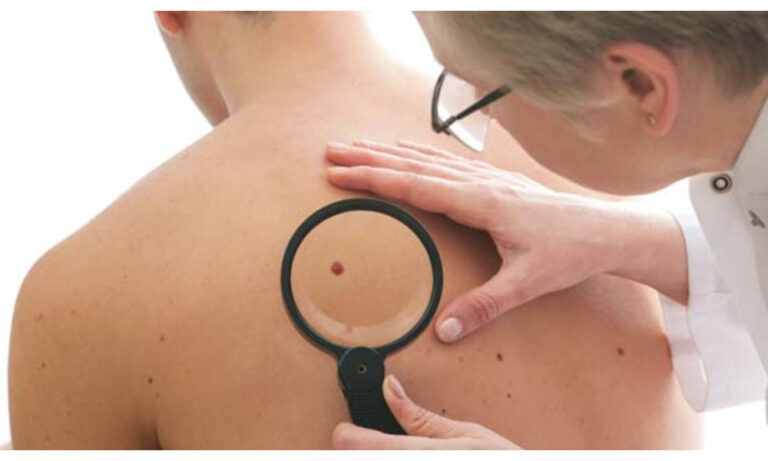
Neurological disorders in newborns can present a range of symptoms that may indicate underlying issues affecting the nervous system. Understanding these signs is crucial for early detection and intervention by a qualified neurologist in Whitefield. This comprehensive guide explores various neurological disorders that can affect newborns, their symptoms, potential causes, and the importance of seeking prompt medical attention for accurate diagnosis and treatment.
Introduction to Neurological Disorders in Newborns
Neurological disorders in newborns encompass a wide spectrum of conditions that affect the brain, spinal cord, nerves, and muscles. These disorders can manifest shortly after birth or may become apparent as the child develops. Early recognition of signs and symptoms is essential for initiating appropriate medical care and therapeutic interventions to optimize the child’s neurological outcomes.
Common Neurological Disorders in Newborns
1. Cerebral Palsy
Signs and Symptoms:
- Abnormal Muscle Tone: Stiffness (hypertonia) or floppiness (hypotonia) in muscles.
- Delayed Motor Development: Difficulty with reaching developmental milestones such as rolling over, sitting, or crawling.
- Atypical Movements: Involuntary movements like spasticity, tremors, or exaggerated reflexes.
- Feeding Difficulties: Challenges with sucking, swallowing, or chewing.
Causes: Damage or abnormal development of the brain’s motor areas before or shortly after birth, often due to prenatal infections, genetic factors, or complications during delivery.
2. Epilepsy
Signs and Symptoms:
- Seizures: Recurrent episodes of abnormal electrical activity in the brain, resulting in various types of seizures (e.g., tonic-clonic, absence seizures).
- Altered Consciousness: Loss of awareness, staring spells, or behavioral changes during and after seizures.
- Unusual Movements: Jerking movements of arms and legs, repetitive motions, or lip-smacking.
Causes: Brain injury, genetic conditions, infections, or metabolic disorders that disrupt normal brain function and electrical activity.
3. Hydrocephalus
Signs and Symptoms:
- Enlarged Head Size: Rapid increase in head circumference due to excess accumulation of cerebrospinal fluid (CSF).
- Bulging Fontanelle: Soft spot on the baby’s head appears tense and bulging.
- Irritability: Excessive crying or fussiness, especially when lying down.
- Vision Problems: Blurred vision, difficulty focusing, or crossed eyes.
Causes: Obstruction in the flow or absorption of CSF within the brain, congenital defects, infections, or hemorrhage.
4. Neonatal Stroke
Signs and Symptoms:
- Seizures: Often the first sign of neonatal stroke.
- Weakness or Paralysis: Hemiparesis (weakness on one side of the body) or complete paralysis.
- Altered Level of Consciousness: Lethargy, decreased responsiveness, or irritability.
- Behavioral Changes: Difficulty feeding, excessive crying, or abnormal eye movements.
Causes: Disruption of blood flow to a part of the brain due to blood clots, vascular malformations, or maternal conditions like preeclampsia.
5. Neurodevelopmental Disorders (e.g., Autism Spectrum Disorder, Intellectual Disabilities)
Signs and Symptoms:
- Delayed Milestones: Slow progress in acquiring skills such as speech, social interaction, or motor skills.
- Communication Challenges: Difficulty in verbal and non-verbal communication.
- Repetitive Behaviors: Stereotypical movements, insistence on routines, or fixation on specific interests.
- Sensory Sensitivities: Heightened or reduced sensitivity to sensory stimuli (e.g., lights, sounds, textures).
Causes: Complex interactions of genetic, environmental, and neurological factors that influence brain development and functioning.
When to Consult a Neurologist in Whitefield
Early Signs and Red Flags
Prompt evaluation by a neurologist is recommended if your newborn exhibits any of the following signs:
- Persistent Abnormal Movements: Involuntary jerking, stiffening, or twitching.
- Difficulty Feeding: Poor sucking reflex, choking during feeding, or prolonged feeding times.
- Unusual Muscle Tone: Extreme stiffness or floppiness that persists beyond the newborn period.
- Seizures: Any episodes of unusual movements, staring spells, or loss of consciousness.
- Delayed Milestones: Significant delays in achieving developmental milestones compared to peers.
- Unexplained Changes in Behavior or Alertness: Sudden changes in responsiveness, irritability, or reduced interaction with caregivers.
Diagnostic Evaluation
A neurologist will perform a thorough assessment, which may include:
- Medical History: Gathering information about pregnancy, birth, and early development.
- Physical Examination: Assessing muscle tone, reflexes, and neurological responses.
- Diagnostic Tests: Brain imaging (MRI or CT scan), electroencephalogram (EEG) to evaluate electrical brain activity, genetic testing, or metabolic screening.
Treatment and Management
The management of neurological disorders in newborns depends on the specific diagnosis and may include:
- Medications: Antiepileptic drugs to control seizures, muscle relaxants, or medications to reduce intracranial pressure in conditions like hydrocephalus.
- Surgical Interventions: Shunt placement for hydrocephalus, corrective surgery for congenital malformations, or neurosurgical procedures to manage seizures or bleeding.
- Early Intervention Services: Occupational therapy, physical therapy, speech therapy, and developmental interventions to support optimal growth and development.
Long-Term Prognosis
The outlook for newborns with neurological disorders varies widely based on the underlying condition, severity of symptoms, and early intervention. Early diagnosis and multidisciplinary care involving neurologists, pediatricians, therapists, and specialized nurses can significantly improve outcomes and quality of life for affected infants and their families.
Finding the Best Neurologist in Whitefield
Credentials and Expertise
- Board Certification: Ensure the neurologist is board-certified and has specialized training in pediatric neurology.
- Experience: Look for a neurologist with extensive experience in diagnosing and treating neurological disorders in newborns.
- Hospital Affiliation: Affiliation with a reputable hospital or medical center equipped with advanced diagnostic and treatment facilities.
Patient Referrals and Recommendations
- Ask for Referrals: Seek recommendations from your pediatrician, obstetrician, or other parents who have experience with pediatric neurology services in Whitefield.
- Online Reviews: Check patient reviews and testimonials to gauge the neurologist’s reputation and quality of care.
Consultation and Communication
- Initial Consultation: Schedule a consultation to discuss your concerns, ask questions about the neurologist’s approach to care, and assess compatibility.
- Communication Style: Choose a neurologist who communicates clearly, listens attentively, and addresses your concerns with empathy.
Conclusion
Recognizing the signs of neurological disorders in newborns is critical for early intervention and improving outcomes. Whether your newborn shows symptoms of seizures, abnormal movements, developmental delays, or unusual behavior, seeking timely evaluation by a qualified neurologist in Whitefield is essential. By partnering with healthcare providers who specialize in pediatric neurology and accessing comprehensive diagnostic and treatment resources, families can navigate the challenges of neurological disorders and support their child’s health and development effectively.
For personalized care and expert guidance, finding the best neurologist in Whitefield ensures that your newborn receives the specialized attention and treatment needed to optimize neurological outcomes and quality of life.




